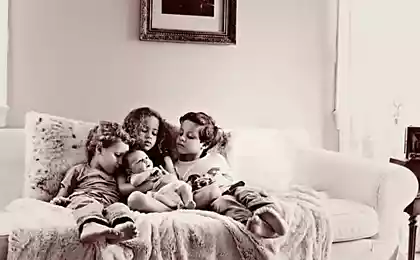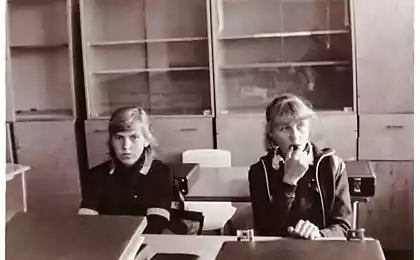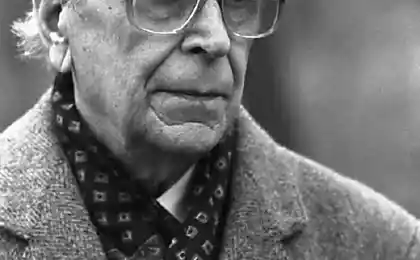194
Why excessive care is bad for children
The phrase “caring person” hardly causes bad associations. Such adjectives as “reliable”, “responsive”, “attentive” immediately come to mind. However, care can be different. Sometimes it is so intrusive and comprehensive that you just want to run away.
And today's edition. "Site" They will talk about the toxic care that often comes from loved ones. Moreover, they can declare anxiety, love or a desire to help, but it does not become easier for the object of excessive care. Why is this happening?

DepositPhotos
There are mothers who devote all their free time to the care, upbringing and care of the child. And this happens not only when a child is a year or two, but also when he is 10, 15 or even 20 years old. Friends consider her a good mother, who gives all herself to the child, and she constantly notes how she loves her child.

DepositPhotos
As a result of enhanced guardianship, a dependent, unhappy, helpless, unadapted to independent life person grows up. Of course, he can do the simplest of things to serve himself. But where it is necessary to make an effort, he retreats - this is alien to him, he is not used to this, this is forbidden to him.
Toxic care He has been around for as long as he knows himself. They always decided for him what to do and what not to do, with whom and how much to play, how warm to dress.

Excessive love for the child does not allow the mother to understand that worrying about the comfort and safety of the child, she deprives him of the opportunity to live a full life, learn from mistakes, gain experience, be an independent person.
Caring people themselves block the whole world, not allowing the child to express desires and feel needs. The object of obsessive love grows up with a sense of duty that fills it instead of gratitude. He wasn't taken seriously, he wasn't heard, he was forced to believe, and now he has to.

DepositPhotos
Psychologists believe that carelessness The result of a mother’s love for herself, not for her child. If a woman suffers from insecurity and contradictions, she tries to find an external object to fulfill her desires. And since she spends her energy on the suppression of internal conflicts, she soon begins to use the energy of the child.
It's like she's telling him, "Be weak and helpless, and I'll take care of everything." You don't need energy, I'll take it and give you everything you need. A dependent child can only obey and play according to the proposed rules. As a result, the object of excessive love grows up with hatred and a painful dependence on the mother.

DepositPhotos
Such adults often spend their lives in throwing, taking out the accumulated anger on random partners. They try to replace dependence on the mother with tobacco or alcohol. And the struggle with apathy and disbelief in their abilities haunt them all their lives.
When a child is young, the parents (or people replacing them) are in complete control of their lives. And it is normal when, as he grows up, the parents gradually pass control of his life to the child. Sometimes it is difficult, sometimes it is scary. Loving mothers and fathers worry, no matter what happens, decide to protect, prohibit. And so every time, hiding behind love and care.

DepositPhotos, but caretaker It is not focused on yourself ("make sure that I do not worry", "do not go anywhere so that I do not worry"), but on the other person, his well-being, needs and desires. This is the only way to educate an independent person.
Have you ever seen examples of toxic care? Tell me in the comments.
And today's edition. "Site" They will talk about the toxic care that often comes from loved ones. Moreover, they can declare anxiety, love or a desire to help, but it does not become easier for the object of excessive care. Why is this happening?

DepositPhotos
There are mothers who devote all their free time to the care, upbringing and care of the child. And this happens not only when a child is a year or two, but also when he is 10, 15 or even 20 years old. Friends consider her a good mother, who gives all herself to the child, and she constantly notes how she loves her child.

DepositPhotos
As a result of enhanced guardianship, a dependent, unhappy, helpless, unadapted to independent life person grows up. Of course, he can do the simplest of things to serve himself. But where it is necessary to make an effort, he retreats - this is alien to him, he is not used to this, this is forbidden to him.
Toxic care He has been around for as long as he knows himself. They always decided for him what to do and what not to do, with whom and how much to play, how warm to dress.

Excessive love for the child does not allow the mother to understand that worrying about the comfort and safety of the child, she deprives him of the opportunity to live a full life, learn from mistakes, gain experience, be an independent person.
Caring people themselves block the whole world, not allowing the child to express desires and feel needs. The object of obsessive love grows up with a sense of duty that fills it instead of gratitude. He wasn't taken seriously, he wasn't heard, he was forced to believe, and now he has to.

DepositPhotos
Psychologists believe that carelessness The result of a mother’s love for herself, not for her child. If a woman suffers from insecurity and contradictions, she tries to find an external object to fulfill her desires. And since she spends her energy on the suppression of internal conflicts, she soon begins to use the energy of the child.
It's like she's telling him, "Be weak and helpless, and I'll take care of everything." You don't need energy, I'll take it and give you everything you need. A dependent child can only obey and play according to the proposed rules. As a result, the object of excessive love grows up with hatred and a painful dependence on the mother.

DepositPhotos
Such adults often spend their lives in throwing, taking out the accumulated anger on random partners. They try to replace dependence on the mother with tobacco or alcohol. And the struggle with apathy and disbelief in their abilities haunt them all their lives.
When a child is young, the parents (or people replacing them) are in complete control of their lives. And it is normal when, as he grows up, the parents gradually pass control of his life to the child. Sometimes it is difficult, sometimes it is scary. Loving mothers and fathers worry, no matter what happens, decide to protect, prohibit. And so every time, hiding behind love and care.

DepositPhotos, but caretaker It is not focused on yourself ("make sure that I do not worry", "do not go anywhere so that I do not worry"), but on the other person, his well-being, needs and desires. This is the only way to educate an independent person.
Have you ever seen examples of toxic care? Tell me in the comments.























